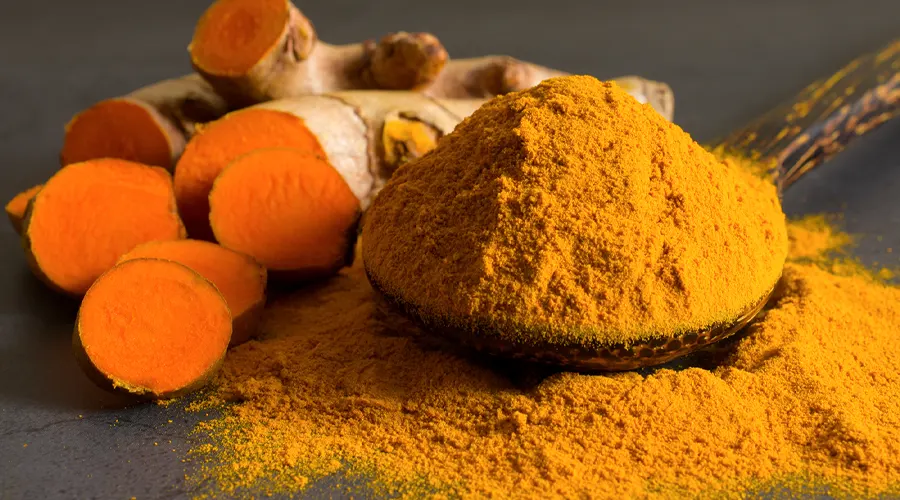 Best Supplements To Improve Joint Health
Best Supplements To Improve Joint HealthOverview
Knowing about joint health and the need to keep them healthy as one ages is vital to health knowledge. This document highlights the top six supplements beneficial for maintaining and improving joint health.
Currently, there are varied joint supplements including glucosamine, chondroitin, MSM, turmeric, omega 3, and hyaluronic acid supplements. Each supplement is special, and benefits the body in different ways such as reducing inflammation while at the same time promoting the regeneration of cartilages, enhancing joint flexibility as and many others.
The review outlines known side effects, groups advised against supplement use, and guidelines for joint health, weight loss, physical activity, diet, hydration, posture, and joint aid use. These steps enhance joint health, leading to painless mobility and improved quality of life.
Introduction
Vital components for the body, especially as we age, including joints. It’s crucial to manage them with supplements for proper care. Joints are essential for movement and body structure. So, it’s important to deal with joint issues early before you became a victim of any joint complication.
Here are the top 6 joint health supplements: glucosamine, chondroitin, MSM, turmeric, omega-3, and hyaluronic acid. Each has unique benefits like
- Reducing inflammation,
- Aiding cartilage regrowth,
- Improving joint flexibility.
- Enhance cartilage health
- Promotes better joint mobility for daily comfort.
Let’s Take A Look At These Joint Supplements
Glucosamine
 Glucosamine
GlucosamineGlucosamine, a naturally occurring compound in motion, is a critical component of cartilage related to joint health. The double-blind controlled clinical trial that was conducted for 12 weeks, reveals that taking/consuming Glucosamine Sulfate at 1500 mg a day can effectively help in the reduction of knee osteoarthritis pain. This helps protect and heal joints and tissues from an affected area when injuries or pain occur.
Chondroitin
 Chondroitin
ChondroitinAnother supplement for joint health is Chondroitin Sulfate;this pairs well with glucosamine. It inhibits cartilage damage, decreases pressure on affected joints, and also has anti-inflammatory properties. According to studies, at a dosage of 1200 mg of Chondroitin Sulfate and 1500 mg of Glucosamine, this particular condition is relieved, and the ability to perform routine tasks is improved.
MSM
 MSM
MSMSome of the uses of MSM include supporting connective tissue, relieving muscle soreness, and helping address joint pain. A 12-week clinical trial also showed that taking 3 gm of MSM daily minimizes pain, stiffness, and swelling in osteoarthritis of the knee. MSM works for the regeneration of tissues and plays an important role in supporting joints.
Turmeric
 Turmeric
TurmericFurthermore, turmeric is a spice that has curcumin, a very useful anti-inflammatory/ antioxidant effect. Studies have shown, taking turmeric at a daily dose of 500-200 mg reduces inflammation in patients with arthritic conditions and decreases joint pain and swelling respectively. It has natural attributes which explain why it is often used as an effective remedy for joint pain.
Omega-3
 Omega-3
Omega-3Omega-3 fatty acids relate to fish oil and these have the best properties of anti-inflammation. Self-reported data and research show that it is safe and advisable to take 1000 mg to 3000 mg of Omega-3 per day to decrease arthritis symptoms;this is due to the supplementation’s positive effect on the efficiency of the inflammatory and joint processes. These fatty acids also have the vital role of reducing inflammation and acting as an anti-friction to bones, therefore enabling flexibility of the joints.
According to Bryan Wright,
“Omega-3 fatty acids help in reducing inflammation effectively. They work by inhibiting the production of inflammatory molecules. I’ve seen patients with chronic pain conditions experience a marked decrease in symptoms after a few months of regular omega-3 supplementation, typically found in fish oil”.
Hyaluronic Acid
 Hyaluronic Acid
Hyaluronic AcidHyaluronic acid is a substance present in connective tissues and body fluids that lubricate bones within joint structures. It has been suggested that taking 200- 240 mg of Hyaluronic acid every day is the recommended dose to ease joint pain and improve joint flexibility. This compound is one of the most important nutrients for promoting the joints’ health and relieving osteoarthritis.
Customer video review – Joint XL Plus
Possible Side Effects of These Supplements
Gastrointestinal Upset
Inappropriate consumption of these supplements in absence of right recommendation can lead to discomfort like light nausea, limited bloating, and diarrhea. Usually, such symptoms fade as the body adapts to the supplement, a natural product extracted from plants.
Blood Sugar Levels
Some supplements may impact the blood sugar which is a critical point of focus for people with diabetes or those with risks of having the disease. People affected with diabetes should consult a doctor for guidance before taking any joint supplements to avoid any possible side effect.
Medication Interactions
Some joint supplements may cause interactions with other treatments such as blood thinners, Non-steroidal anti-inflammatory drugs (NSAIDs), and anticoagulants. It is safer to consult a doctor before use to prevent any negative interactions.
Kidney Function
Increased supplement element dosages affect the kidneys, particularly for individuals with kidney disorders. It is preferred that any person consuming the product should follow the recommended dose to avoid potential problems. There is always a future or present medical state that could cause an interaction between the supplement and an existing medication, so it is always wise to consult your healthcare provider before taking any new supplement.
Who should not take these supplements for joint pain?
Pregnant or Nursing Women
It’s best for pregnant and nursing mothers to consult a doctor before trying new supplements for joint health. When it comes to pregnancy and breastfeeding, there haven’t been enough studies, so it’s important to steer clear of anything that could harm you or your baby.
Individuals with Diabetes
Avoid supplements like MSM or glucosamine if you have diabetes or any other health complications that are likely to increase your blood sugar. It’s advisable for to consult your doctor if you notify some negative changes in your blood glucose levels.
Patients on Blood Thinners
Some joint supplements, for example, glucosamine, and omega-3 fatty acids should not be taken if one uses certain medicines such as warfarin or NSAIDs. If possible, it’s important to consult a doctor to address these interactions.
Individuals with Kidney Disorders
If you have kidney problems, avoid taking supplements that will cause additional pressure to your kidneys such as MSM and some elements when taken in large quantities. Do not use them too often and consult the doctor if your symptoms worsen.
Individuals With Special Health Care Needs
So, we must consult a doctor before using any joint supplements, especially if one has a problem with the liver or high blood pressure. These supplements may cause interactions with your medication or health condition resulting in unwanted side effects.
Additional Tips For Joint Health
- Maintain a Healthy Weight: When someone is overweight, the extra weight affects the joints. It’s better for high-tech gear to bear the load than the knees, hips, or spine. This pressure can cause aches and is known to reduce joint pain, particularly for overweight individuals.
- Stay Physically Active: Your diet influences your exercises. Opt for low-impact activities like swimming or cycling to reduce joint strain.
- Eat a Balanced Diet: Certain foods have anti-inflammatory properties, like fruits and veggies, while specific fatty acids can improve joint health. Avoid refined foods, sugary products, and excessive red meat consumption to reduce inflammation.
- Stay Hydrated: It’s important to stay well-hydrated to protect your joints from pain. Drinking plenty of water daily can help prevent joint issues.
- Practice Good Posture: Improving posture can reduce joint pressure and prevent injuries when dealing with weight and force. Maintaining good posture while sitting, standing, or lifting objects within safe limits minimizes joint strain.
- Use Joint Supports if Needed: To prevent joint irritation, individuals experiencing prior joint pain can use a brace or splint for rest during activities that stress those joints.
FAQs
What are the benefits of glucosamine for joint health?
Glucosamine helps reduce knee osteoarthritis pain, protects joints, and supports cartilage regeneration.
How does chondroitin work in improving joint health?
Chondroitin inhibits cartilage damage, decreases joint pressure, and has anti-inflammatory properties.
What is MSM and how does it help with joint pain?
MSM supports connective tissues, reduces muscle soreness, and minimizes pain, stiffness, and swelling in joints.
How does turmeric benefit joints?
Turmeric, with its active ingredient curcumin, reduces inflammation and decreases joint pain and swelling.
What role do omega-3 fatty acids play in joint health?
Omega-3 fatty acids reduce inflammation, improve joint flexibility, and act as anti-friction agents for bones.
How does hyaluronic acid support joint health?
Hyaluronic acid lubricates joints, reduces pain, and enhances joint flexibility by maintaining connective tissues.
Are there any side effects associated with these joint supplements?
Potential side effects include gastrointestinal upset, blood sugar level changes, medication interactions, and kidney strain.
Who should avoid taking these joint supplements?
Pregnant or nursing women, individuals with diabetes, those on blood thinners, and people with kidney disorders should avoid these supplements without medical advice.
How can maintaining a healthy weight benefit joint health?
Maintaining a healthy weight reduces pressure on joints, particularly in the knees, hips, and spine, thus alleviating joint pain.
Why is it important to stay hydrated for joint health?
Staying well-hydrated helps lubricate joints, preventing pain and ensuring smooth joint movement.
Conclusion
In conclusion, healthy joints are important. They allow us to move, especially as we age. We’ve discussed the following supplements in detail: They are glucosamine, chondroitin, MSM, turmeric, omega-3, and hyaluronic acid. They help support joints byreducing inflammation, growing cartilage and widening joints.
These components have benefits for mobility and joint support during exercise. They help reduce pain & keeps your joint healthy for a long go. You should not neglect to care for joint health. It’s vital for your current and future well-being and mobility. It’s worth the cost.




